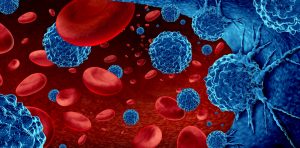
23andMe to move into drug development
pharmafile | March 16, 2015 | News story | Medical Communications, Research and Development, Sales and Marketing | 23andME, DNA, Genentech, Pfizer, google
The Google-backed DNA test company 23andMe has announced plans to start using genetic data to design new drugs.
In recent months the California-based firm has struck deals with big pharma to sell anonymous genetic data from customers’ test results to Roche’s biotech arm Genentech and to Pfizer, for research into Parkinson’s and irritable bowel disease.
Now 23andMe plans to go one better by forming a new therapeutics division, led by Richard Scheller, who led drug discovery at biotech firm Genentech for 14 years before retiring in December.
23andMe says the therapeutic group will “aim to use human genetic data as the starting point for identifying new therapies for both common and rare diseases”.
“I wanted a new challenge, I wanted a new area of science to learn more about, I wanted to see if we could really take advantage of the full potential of the human genome and thought that this is the best place to do that,” Scheller says.
He will start next month with the title of chief scientific officer and head of therapeutics, and the firm could eventually have a staff comprising dozens of workers.
“I have dedicated my life to research aimed at fulfilling unmet needs for very sick people,” says Dr Scheller. “I believe that human genetics has a very important role to play in finding new treatments for disease. I am excited about the potential for what may be possible through 23andMe’s database. It is unlike any other.”
The move means 23andMe will be able to maximise the commercial value of the estimated 800,000 personal gene testing kits it has sold to customers – who have given their consent to their data being used for research purposes.
Since launching the service after overcoming FDA hurdles in November 2013 and expanding into the UK in December, the company has significantly altered its business model to broaden its revenue.
But industry analysts say the move could be a big gamble. While a genetic database the size of that owned by 23andMe represents a promising place to start identifying and validating new drug targets, the challenge will be to find attractive prospects that big pharma will be willing to pay extensive R&D costs to develop.
Anne Wojcicki, 23andMe’s founder, says the new approach focusses on delivering new treatments for 23andMe’s customers.
“People want to see a cure,” she says. “And cures don’t magically appear. Cures come from pharma, and biotech. And so part of what I think we can do is by making sure that the consumer really is at the forefront, that they are informed, that they know what’s going on, I’m hoping that they can really do a meaningful service for them by helping to develop those types of therapies.
“With Dr Scheller joining the team, we are putting significant resources into translating genetic information into the discovery and development of new therapies for our customers and the world. This is a major step forward to realising our mission to help people benefit from the human genome.”
Lilian Anekwe
Related Content

Genentech’s Columbi meets primary endpoint in phase 3 trial for lymphoma treatment
Genentech, part of the Roche Group, has announced that its phase 3 STARGLO trial has …

Pfizer’s Velsipity approved by EC for ulcerative colitis treatment
Pfizer has announced that the European Commission (EC) has granted marketing authorisation for Velsipity (etrasimod) …

EC approves Pfizer’s Elrexfio for relapsed and refractory multiple myeloma
Pfizer has announced that the European Commission (EC) has granted conditional marketing authorisation for Elrexfio …








